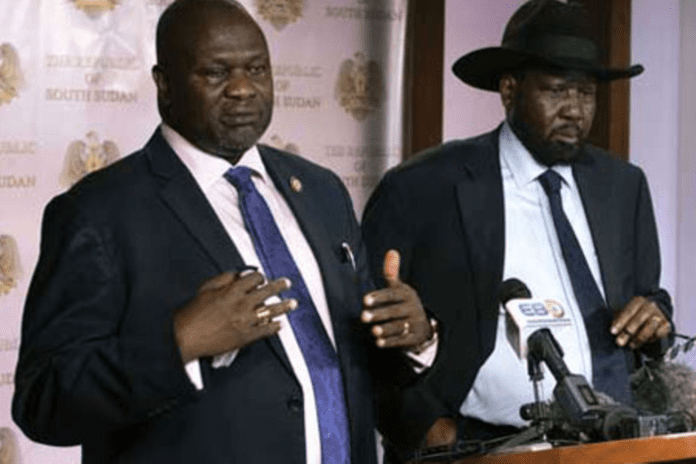
Kenyan enterprises operating in South Sudan are facing the threat of massive losses and potential shutdowns as the country inches closer to renewed civil war.
The United Nations has termed the situation “dire,” as tensions between forces loyal to President Salva Kiir and those backing Vice President Riek Machar continue to rise.
On Tuesday, US Secretary of State Marco Rubio and President William Ruto held discussions on the worsening crisis in South Sudan, amid growing fears that the conflict could spiral into full-blown violence.
Kenyan businesses, including banks, insurance firms, and airlines, have a strong presence in South Sudan, which, despite being the world’s youngest nation, has been plagued by recurring conflict. Thousands of Kenyans also live and work in the country.
A statement from the US State Department indicated that Ruto and Rubio addressed “recent developments in Somalia and South Sudan.”
Ruto stated that during the talks, he briefed Rubio on Kenya’s efforts to engage both the government and opposition in de-escalating tensions and reviving the peace process. Kenya had been hosting the Tumaini Initiative negotiations involving Hold-Out Opposition groups for nearly a year before they stalled last month.
Rubio’s call came just a day after the United Nations Mission in South Sudan (UNMISS) issued a warning that the country was on the verge of slipping back into civil war.
UNMISS head Nicholas Haysom reported that fighting had intensified in Upper Nile, particularly between the White Army militia and the South Sudan People’s Defence Forces (SSPDF) in Nasir since March 4.
He expressed concern over indiscriminate attacks targeting civilians, which have resulted in numerous casualties and severe injuries, including burns affecting women and children.
“Our humanitarian partners estimate that at least 63,000 people have fled the area. We are receiving reports of further mobilisation of White Army and SSPDF forces in Upper Nile, allegedly including children forcibly recruited into their ranks,” Haysom stated.
He further noted that misinformation, disinformation, and hate speech were fueling ethnic divisions and stoking fear across the country.
“Given this grim situation, we are left with no other conclusion but to assess that South Sudan is teetering on the edge of a relapse into civil war,” he warned.
Haysom also pointed out that the presence of foreign forces, particularly Ugandan troops deployed at the request of the South Sudanese government, was exacerbating tensions.
A fresh outbreak of civil war in South Sudan would significantly impact Kenyans and their business interests, given that the country depends heavily on Kenya for imports, consumer goods, and raw materials.






